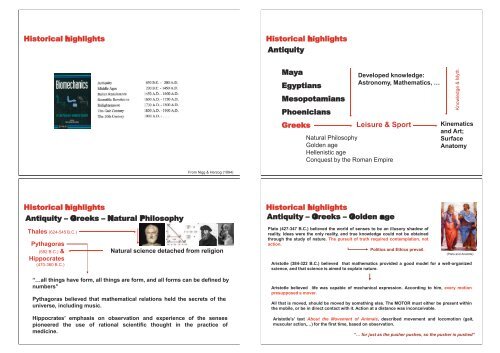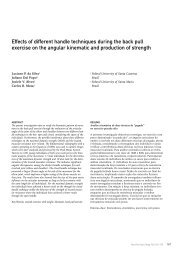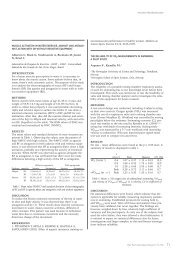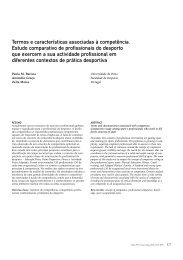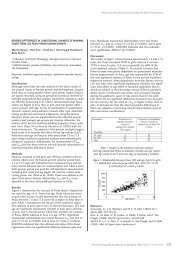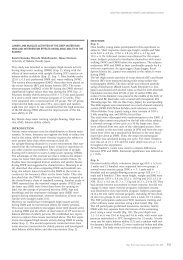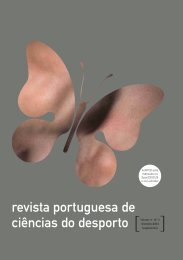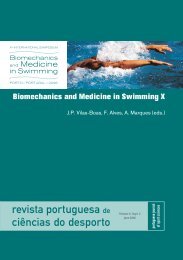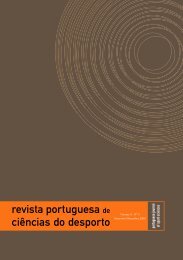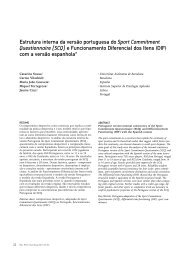Biomechanics
Biomechanics
Biomechanics
Create successful ePaper yourself
Turn your PDF publications into a flip-book with our unique Google optimized e-Paper software.
Historical highlights Historical highlights<br />
Historical highlights<br />
Antiquity – Greeks – Natural Philosophy<br />
Thales (624-545 B.C.)<br />
Pythagoras<br />
(582 B.C.) &<br />
Hippocrates<br />
(470-360 B.C.)<br />
From Nigg & Herzog (1994)<br />
Natural science detached from religion<br />
“…all things have form, all things are form, and all forms can be defined by<br />
numbers”<br />
Pythagoras believed that mathematical relations held the secrets of the<br />
universe, including music.<br />
Hippocrates’ emphasis on observation and experience of the senses<br />
pioneered the use of rational scientific thought in the practice of<br />
medicine.<br />
Antiquity<br />
Maya<br />
Egyptians<br />
Mesopotamians<br />
Phoenicians<br />
Greeks<br />
Developed knowledge:<br />
Astronomy, Mathematics, …<br />
Leisure & Sport<br />
Natural Philosophy<br />
Golden age<br />
Hellenistic age<br />
Conquest by the Roman Empire<br />
Historical highlights<br />
Antiquity – Greeks – Golden age<br />
Plato (427-347 B.C.) believed the world of senses to be an illusory shadow of<br />
reality. Ideas were the only reality, and true knowledge could not be obtained<br />
through the study of nature. The pursuit of truth required contemplation, not<br />
action.<br />
Politics and Ethics prevail.<br />
Knowledge & Myth<br />
Kinematics<br />
and Art;<br />
Surface<br />
Anatomy<br />
(Plato and Aristotle)<br />
Aristotle (384-322 B.C.) believed that mathematics provided a good model for a well-organized<br />
science, and that science is aimed to explain nature.<br />
Aristotle believed life was capable of mechanical expression. According to him, every motion<br />
presupposed a mover.<br />
All that is moved, should be moved by something else. The MOTOR must either be present within<br />
the mobile, or be in direct contact with it. Action at a distance was inconceivable.<br />
Aristotle's’ text About the Movement of Animals, described movement and locomotion (gait,<br />
muscular action,…) for the first time, based on observation.<br />
“… for just as the pusher pushes, so the pusher is pushed”


